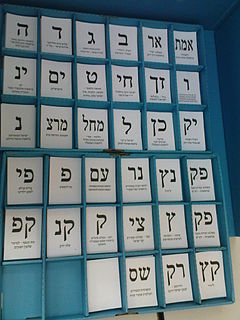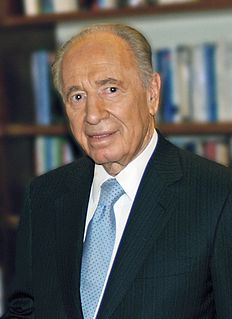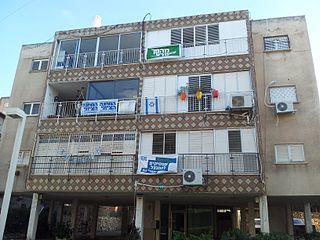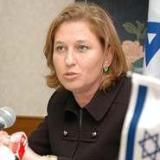| ||||||||||||||||||||||||||||||||||||||||||||||||||||||||||||||||||
This lists parties that won seats. See the complete results below. | ||||||||||||||||||||||||||||||||||||||||||||||||||||||||||||||||||
| ||||||||||||||||||||||||||||||||||||||||||||||||||||||||||||||||||
Elections for the 17th Knesset were held in Israel on 28 March 2006. The voting resulted in a plurality of seats for the then-new Kadima party, followed by the Labor Party, and a major loss for the Likud party.

Elections in Israel are based on nationwide proportional representation. The electoral threshold is currently set at 3.25%, with the number of seats a party receives in the Knesset being proportional to the number of votes it receives. The Knesset is elected for a four-year term, although most governments have not served a full term and early elections are a frequent occurrence. Israel has a multi-party system based on coalition governments as no party has ever won a majority of seats in a national election, although the Alignment briefly held a majority following its formation by an alliance of several different parties prior to the 1969 elections. The legal voting age for Israeli citizens is 18. Elections are overseen by the Central Elections Committee and are held according to the Knesset Elections Law.

The Knesset is the unicameral national legislature of Israel. As the legislative branch of the Israeli government, the Knesset passes all laws, elects the President and Prime Minister, approves the cabinet, and supervises the work of the government. In addition, the Knesset elects the State Comptroller. It also has the power to waive the immunity of its members, remove the President and the State Comptroller from office, dissolve the government in a constructive vote of no confidence, and to dissolve itself and call new elections. The Prime Minister may also dissolve the Knesset. However, until an election is completed, the Knesset maintains authority in its current composition. The Knesset is located in Givat Ram, Jerusalem.

Israel, officially the State of Israel, is a country in Western Asia, located on the southeastern shore of the Mediterranean Sea and the northern shore of the Red Sea. It has land borders with Lebanon to the north, Syria to the northeast, Jordan on the east, the Palestinian territories of the West Bank and Gaza Strip to the east and west, respectively, and Egypt to the southwest. The country contains geographically diverse features within its relatively small area. Israel's economic and technological center is Tel Aviv, while its seat of government and proclaimed capital is Jerusalem, although the state's sovereignty over Jerusalem has only partial recognition.
Contents
- Background
- 2003 election and later developments
- Fall of the Likud-led government
- Likud split and the formation of Kadima
- Party leadership and list selections
- Key issues
- The Israeli–Palestinian conflict
- Economic and social issues
- Israel as a Jewish and democratic state
- Procedures
- List of participating parties
- Pre-election opinion polling
- Results
- Results by city
- Immediate impact and coalition formation
- See also
- References
- External links
After the election, the government was formed by the Kadima, Labor, Shas, and Gil parties, with the Yisrael Beiteinu party joining the government later. The Prime Minister was Ehud Olmert, leader of Kadima, who had been the acting prime minister going into the election.

Shas is an ultra-Orthodox religious political party in Israel. Founded in 1984 under the leadership of Rabbi Ovadia Yosef, a former Israeli Sephardi chief rabbi, who remained its spiritual leader until his death in October 2013, it primarily represents the interests of Haredi Sephardic and Mizrahi Jews. The party works to end prejudice and discrimination against the Sephardic community, and highlights economic issues and social justice.
Yisrael Beiteinu is a secularist and right-wing nationalist political party in Israel. The party's base was originally secular, Russian-speaking Israelis although support from this demographic is in decline. The party describes itself as "a national movement with the clear vision to follow in the bold path of Zev Jabotinsky", the founder of Revisionist Zionism. It has primarily represented immigrants from the former Soviet Union. Although it has attempted to expand its appeal to more established Israelis, it has not been successful. It takes a strong line towards the peace process and the integration of Israeli Arabs, characterized by its 2009 election slogan "No loyalty, no citizenship". Its main platform includes a recognition of the two-state solution, the creation of a Palestinian state that would include an exchange of some largely Arab-inhabited parts of Israel for largely Jewish-inhabited parts of the West Bank. The party maintains an anti-clerical mantle and encourages socio-economic opportunities for new immigrants, in conjunction with efforts to increase Jewish immigration. In the 2009 election the party won 15 seats, its most to date, making it the third largest party in the previous Knesset. In the 2015 election, the party won six seats.

Ehud Olmert is an Israeli politician and lawyer. He served as the 12th Prime Minister of Israel from 2006 to 2009 and before that as a cabinet minister from 1988 to 1992 and from 2003 to 2006. Between his first and second stints as a cabinet member, he served as mayor of Jerusalem from 1993 to 2003. After serving as PM he was sentenced to serve a prison term over convictions for accepting bribes and for obstruction of justice during his terms as mayor of Jerusalem and as trade minister.
According to the Congressional Research Service:
The March 28, 2006, Knesset election results were surprising in many respects. The voter turnout of 63.2% was the lowest ever. The contest was widely viewed as a referendum on Kadima’s plans to disengage from the West Bank, but it also proved to be a vote on economic policies that many believed had harmed the disadvantaged. Kadima came in first, but by a smaller margin than polls had predicted. Labor, emphasizing socioeconomic issues, came in a respectable second. Likud lost 75% of its votes from 2003 because Kadima drained off supporters. Its decline also was due to Netanyahu, whose policies as Finance Minister were blamed for social distress and whose opposition to unilateral disengagement was unpopular with an increasingly pragmatic, non-ideological electorate. [1]

















